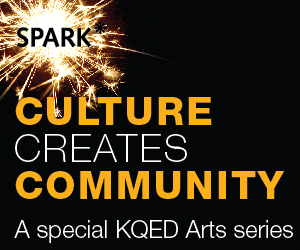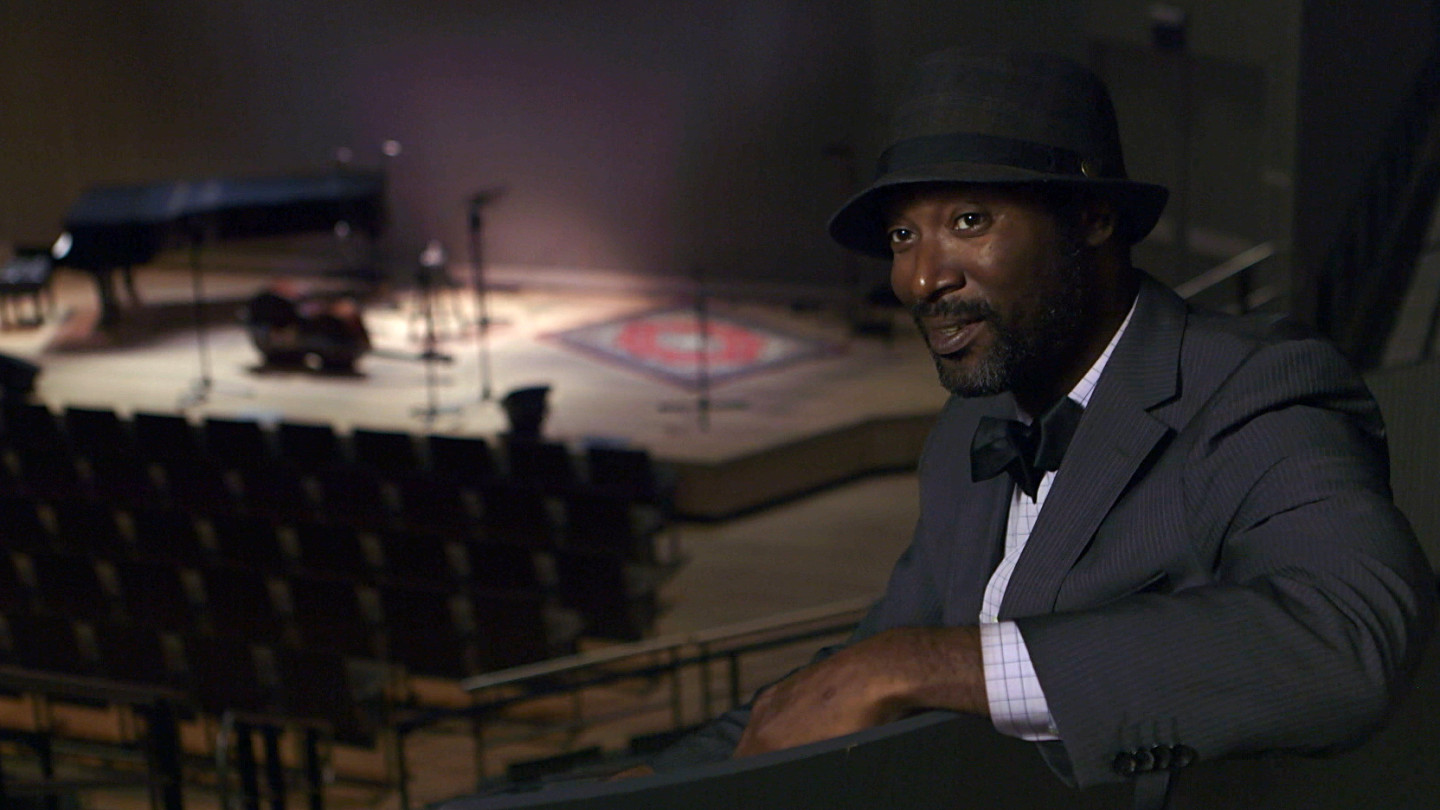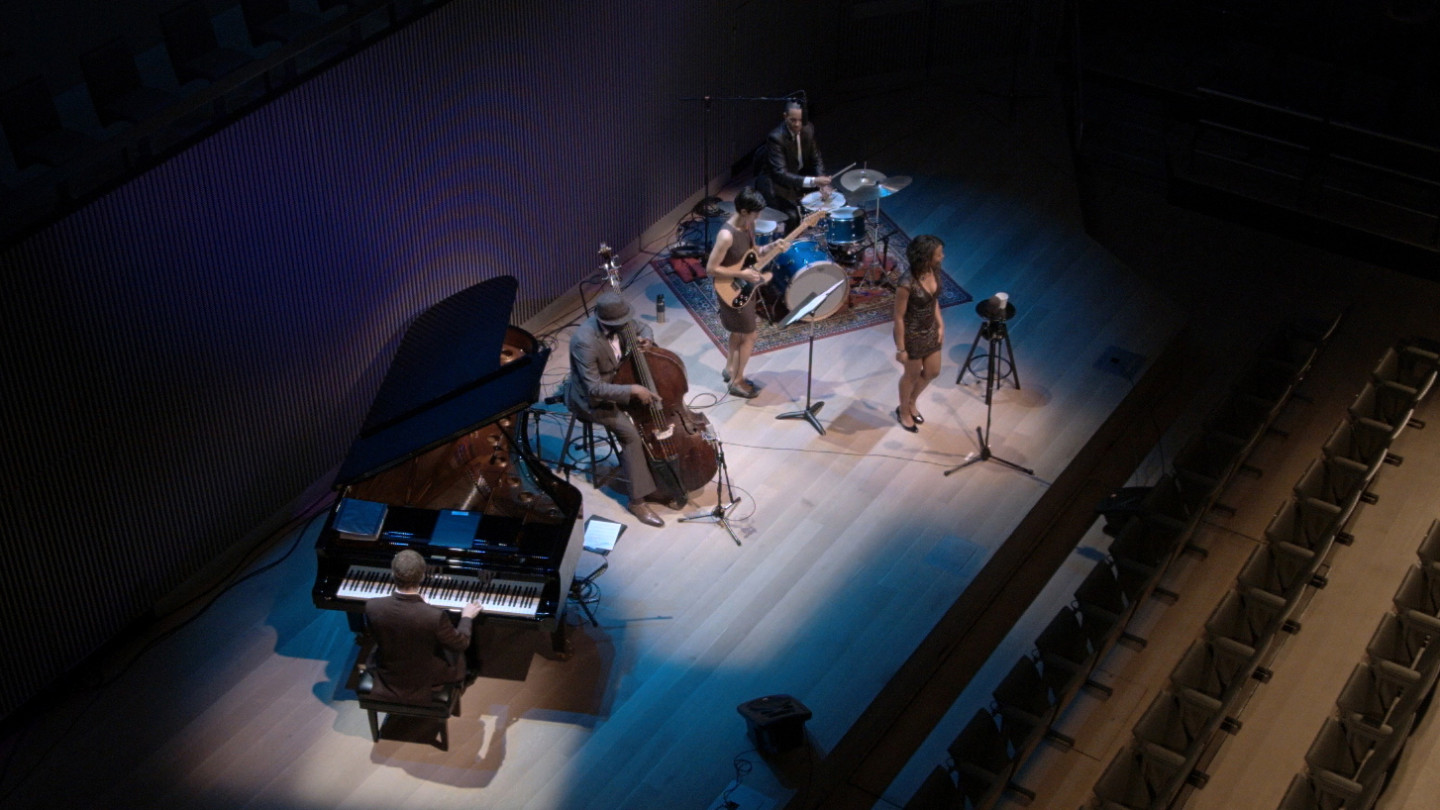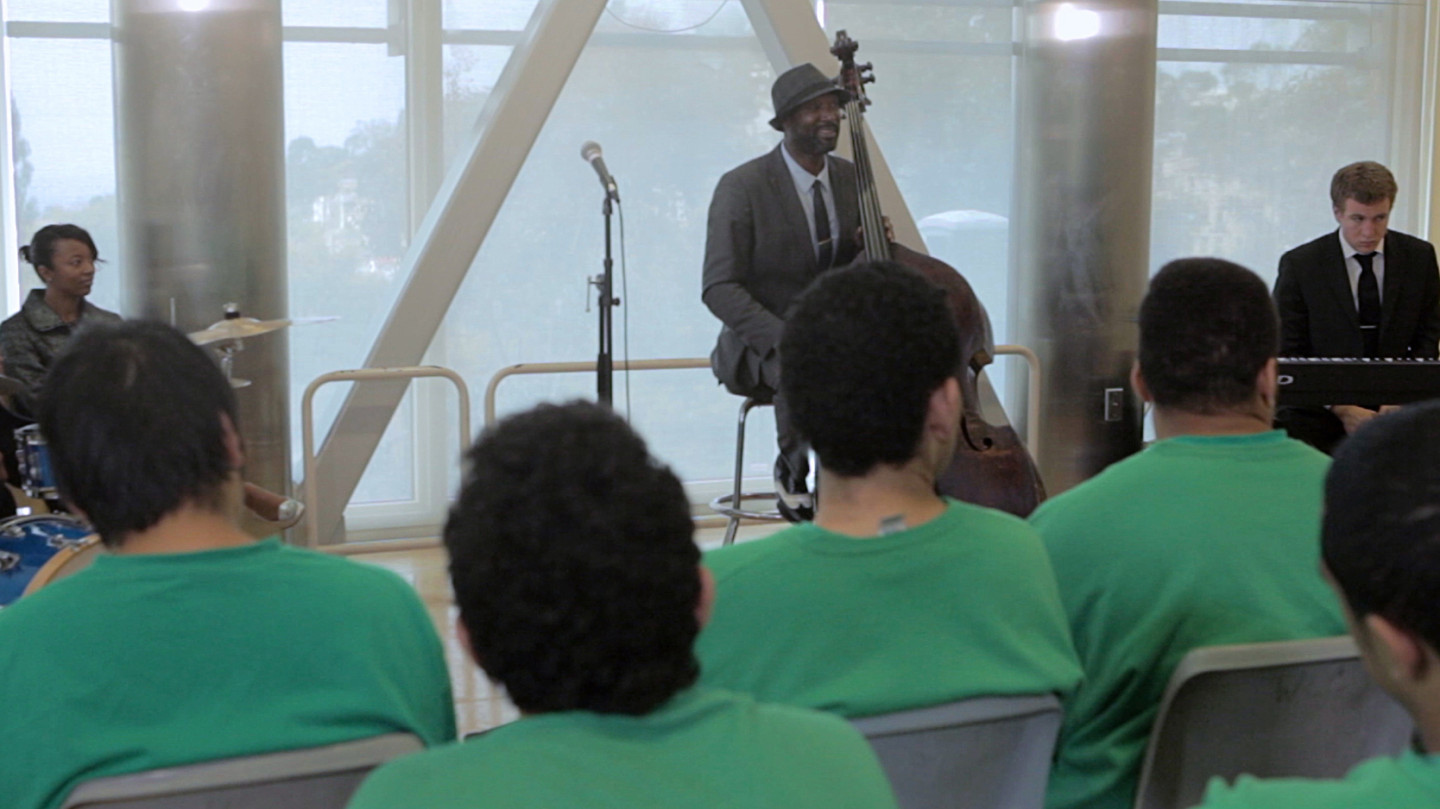When he was 13 Marcus Shelby’s mom gave him a choice: either play bass with the church choir or be an usher. Determined never to wear an usher’s uniform, he chose the choir and thus began his public life in music. He played bass casually in high school, but it wasn’t until he was 20 and saw Wynton Marsalis perform that he knew he wanted to be a professional musician. “I saw in Wynton Marsalis everything I wanted to be,” Shelby says. “So from that moment till today, it’s been walking towards this sort of light, if you will, towards the music.”
 That walk has been a swift one since Shelby won both the Charles Mingus Scholarship to the California Institute of the Arts and the John Coltrane Young Musicians & Artists Competition in the same year, 1991. Over the last two decades Shelby – who leads the Marcus Shelby Jazz Orchestra, the Marcus Shelby Hot 7, the Marcus Shelby Quintet and the Marcus Shelby Trio — has become a fixture of the San Francisco blues and jazz scene. Voted best jazz musician by numerous Bay Area publications, Shelby is a San Francisco Arts Commissioner and an artist in residence at the Yerba Buena Gardens Festival. The organization funds many of Shelby’s projects that bring music to underserved communities and has commissioned a number of Shelby’s extended compositions.
That walk has been a swift one since Shelby won both the Charles Mingus Scholarship to the California Institute of the Arts and the John Coltrane Young Musicians & Artists Competition in the same year, 1991. Over the last two decades Shelby – who leads the Marcus Shelby Jazz Orchestra, the Marcus Shelby Hot 7, the Marcus Shelby Quintet and the Marcus Shelby Trio — has become a fixture of the San Francisco blues and jazz scene. Voted best jazz musician by numerous Bay Area publications, Shelby is a San Francisco Arts Commissioner and an artist in residence at the Yerba Buena Gardens Festival. The organization funds many of Shelby’s projects that bring music to underserved communities and has commissioned a number of Shelby’s extended compositions.

As a composer, Shelby is perhaps best known for telling the story of the African American experience through compositions like “Soul of the Movement,” “Harriet Tubman” and “Port Chicago.” Shelby says diving into the research necessary to create these pieces allows him to grow artistically and personally. For a piece about Emmett Till, for example, he traveled to where Till’s body was thrown into the Tallahatchie River and read multiple books on Till’s life and times. Because of the music, he came to a new understanding of how Till’s death lent urgency to the civil rights movement: “When Rosa Parks refused to give up her seat on the bus,” Shelby recalls, “they asked her why. She said, ‘I was thinking about Emmett Till and I couldn’t turn back.’

“So because you want to write some music about this history, you learn about it and you are able to share it in a different way,” Shelby says. “And, hopefully, it changes you.”
Shelby says sharing these stories with young people adds a heightened meaning to his music. “When I’m talking to young people, I’m not just regurgitating the history, but I’m talking about a time in our history where people had to do great things,” Shelby says. “I try to connect their feelings with this musical power. I tell them they have that power.” Over the years Shelby has worked with youths of all ages, from preschoolers to university students, at such places as the Rooftop Alternative School in San Francisco, the Community Music Center in the Mission, and the Stanford Jazz Workshop, at Stanford University. Shelby also performs and gives workshops in juvenile halls like the Juvenile Justice Center in San Francisco (shown in the accompanying video), where he says he strives to inspire and build relationships with young people while encouraging their natural creative talents.

Shelby believes he’s following the example of musicians like Charles Mingus, Duke Ellington and Nina Simone — artists who used their music to highlight the issues of the day. “In every freedom and social movement, music has been at the center as a tool for communication,” Shelby says. “So I think that it has a power that extends outside of just performance or entertainment.” Shelby’s next project is to compose the music for Anna Deavere Smith’s one-woman show about the school-to-prison pipeline.

